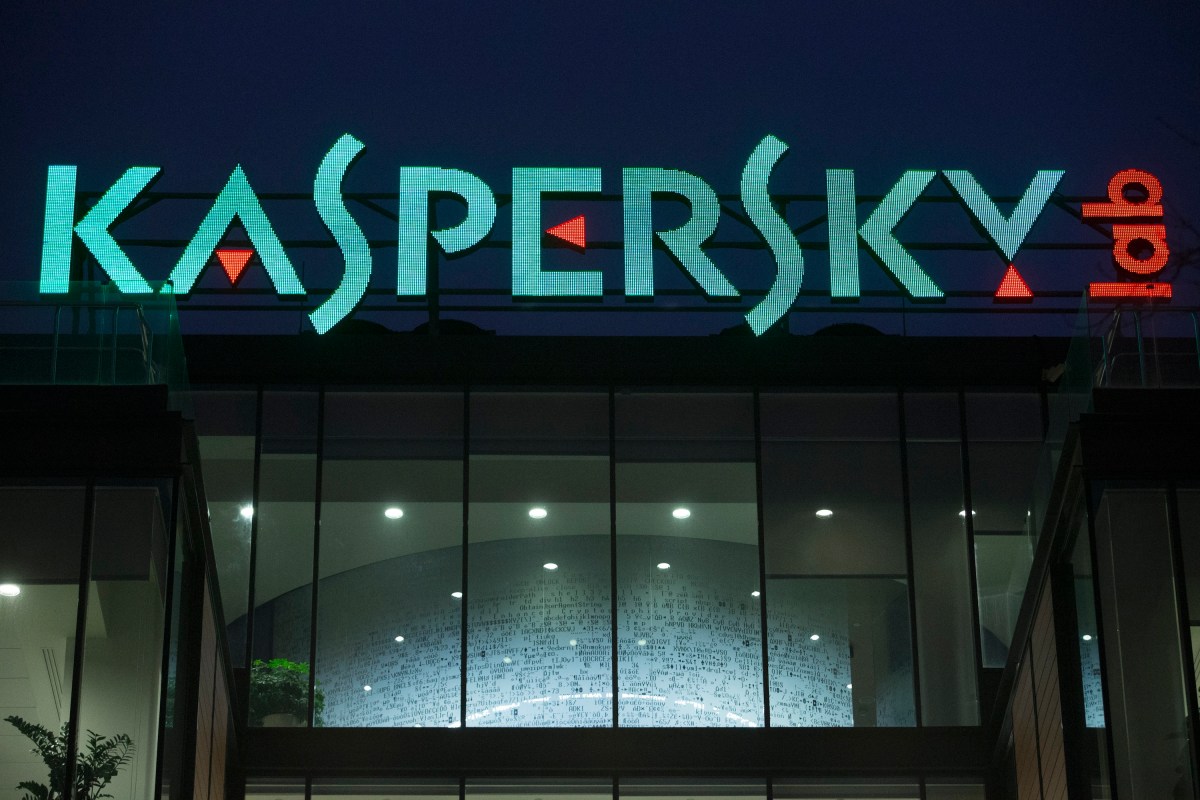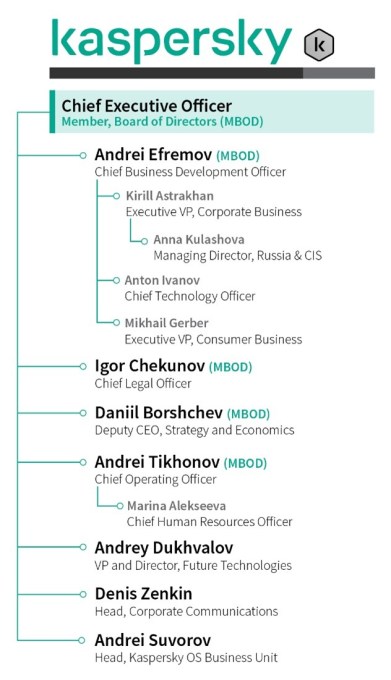
The U.S. government announced sanctions against 12 executives and senior leaders of the Russia-based cybersecurity giant Kaspersky.
In a press release, the Department of the Treasury’s Office of Foreign Assets Control (OFAC) said it designated the 12 company executives to protect internet users against malicious cyber threats.
“Today’s action against the leadership of Kaspersky Lab underscores our commitment to ensure the integrity of our cyber domain and to protect our citizens against malicious cyber threats,” Under Secretary of the Treasury for Terrorism and Financial Intelligence Brian E. Nelson was quoted as saying in the press release. “The United States will take action where necessary to hold accountable those who would seek to facilitate or otherwise enable these activities.”
The list of sanctioned individuals includes several Kaspersky board members, including Andrei Anatolyevich Efremov, who is also Kaspersky’s chief business development officer, and Igor Gennadyevich Chekunov, who serves as the company’s chief legal officer.
Also sanctioned are Kaspersky’s global human resources chief Marina Mikhaylovna Alekseev, the company’s head of communications Denis Vladimirovich Zenkin and chief technology officer Anton Mikhaylovich Ivanov, among others.
OFAC noted that it did not sanction Kaspersky, its parent or subsidiary companies, nor the company’s founder and chief executive, Eugene Kaspersky.
A spokesperson for the Treasury did not immediately respond to a request for comment asking why CEO Kaspersky was not included in the sanctions. A Kaspersky spokesperson also did not respond to a request for comment.
Today’s sanctions will make it more difficult for the named executives to start a new company, and it will effectively bar American customers and businesses from paying Kaspersky. Earlier this year, the U.S. government imposed similar sanctions against spyware maker Intellexa and its founder.

The sanctions come a day after the U.S. government announced a “first of its kind” ban on the sale of Kaspersky software in the United States, which will go into effect on July 20. Kaspersky will still be able to provide software updates to existing customers, but only until September 29. After that, U.S. customers who still use Kaspersky won’t be able to get updates, which will render their antivirus software outdated and potentially unable to stop the latest cybersecurity threats.
Kaspersky’s spokesperson Sawyer VanHorn said Thursday that the company would challenge the ban.
The U.S. government has for years taken actions against Kaspersky due to fears that it could be used as an instrument of Russian government influence, to help it hack U.S. targets or otherwise harm national security.
In September 2017, the Trump administration banned the use of the company’s software in government agencies. Earlier that year, Russian government hackers reportedly stole U.S. classified documents from an intelligence contractor’s home computer, which was at the time running Kaspersky’s antivirus software.





